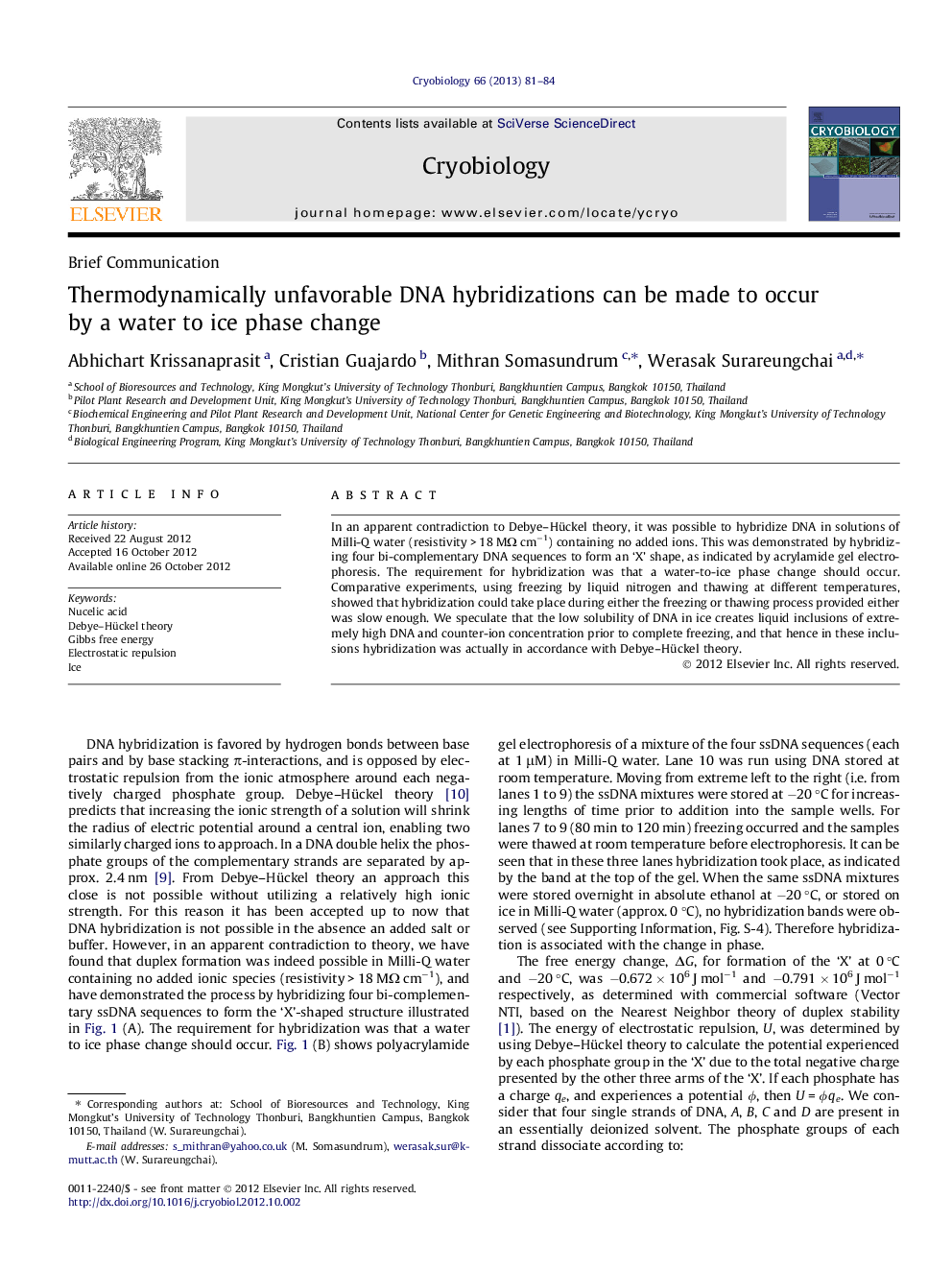| Article ID | Journal | Published Year | Pages | File Type |
|---|---|---|---|---|
| 10928274 | Cryobiology | 2013 | 4 Pages |
Abstract
In an apparent contradiction to Debye-Hückel theory, it was possible to hybridize DNA in solutions of Milli-Q water (resistivity > 18 MΩ cmâ1) containing no added ions. This was demonstrated by hybridizing four bi-complementary DNA sequences to form an 'X' shape, as indicated by acrylamide gel electrophoresis. The requirement for hybridization was that a water-to-ice phase change should occur. Comparative experiments, using freezing by liquid nitrogen and thawing at different temperatures, showed that hybridization could take place during either the freezing or thawing process provided either was slow enough. We speculate that the low solubility of DNA in ice creates liquid inclusions of extremely high DNA and counter-ion concentration prior to complete freezing, and that hence in these inclusions hybridization was actually in accordance with Debye-Hückel theory.
Related Topics
Life Sciences
Agricultural and Biological Sciences
Agricultural and Biological Sciences (General)
Authors
Abhichart Krissanaprasit, Cristian Guajardo, Mithran Somasundrum, Werasak Surareungchai,
